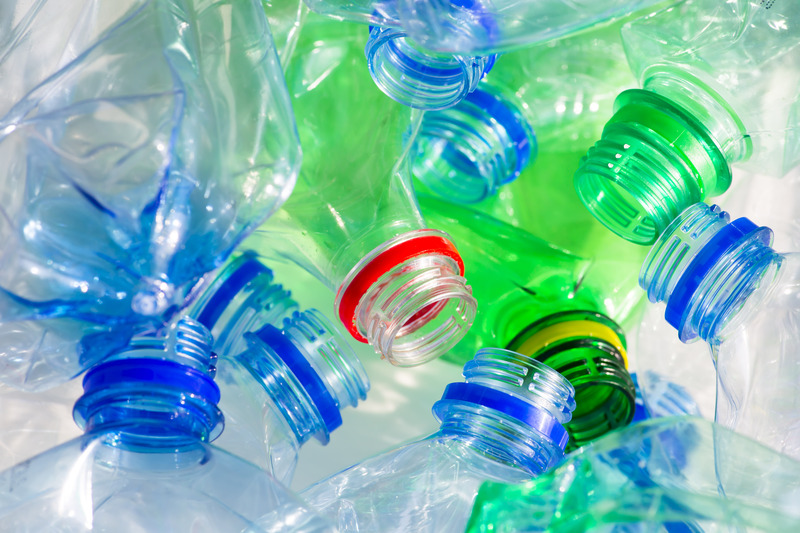Improve Your Home's Recycling with These Practical Tips
Are you looking to make your home more eco-friendly and reduce your carbon footprint? Enhancing your home recycling habits is one of the most impactful steps you can take. Whether you're a recycling novice or an eco-warrior, there's always room for improvement. In this comprehensive guide, we'll explore actionable ways to improve your home's recycling, making it easier, more effective, and genuinely sustainable. Let's turn your household waste into a resource, not a burden!
Understanding Why Home Recycling Matters
The importance of residential recycling goes far beyond simply reducing the amount of trash sent to landfills. Improving your home's recycling efforts can conserve natural resources, save energy, prevent pollution, and even generate economic benefits for your community.
- Conserve Resources: Recycling helps extend the lifespan of valuable natural materials such as paper, plastics, glass, and metals.
- Save Energy: Manufacturing products from recyclables often uses less energy compared to using raw resources.
- Reduce Pollution: Effective recycling reduces landfill use and greenhouse gas emissions.
- Support Local Economy: Many cities benefit economically from successful residential recycling programs.

Assess Your Current Recycling Habits
Before making improvements, it's important to know what you're already doing well and where you could enhance your efforts. Take some time to analyze your household's current recycling routines:
- Which materials do you recycle regularly?
- What often ends up in your trash that could be recycled?
- Are objects being properly prepared for recycling (cleaned, sorted, etc.)?
- Does everyone in your home know what and how to recycle?
By identifying weak spots in your current recycling habits, you'll be able to target specific actions for improvement.
Set Up a Streamlined Home Recycling Station
The foundation of efficient home recycling is a well-organized recycling area. When recycling is convenient, you're more likely to do it right. Here's how you can optimize your setup:
Choose the Right Location
- Centralize: Place bins in high-traffic areas such as the kitchen or garage.
- Accessibility: Make sure bins are easy to reach for both adults and children.
Provide Multiple Bins
- Separate Materials: Have separate containers for paper, plastics, glass, and metals if required by your local authority.
- Clear Labeling: Use colored bins or clear labels so everyone knows what goes where.
Keep It Clean and Tidy
- Easy Cleaning: Choose bins that are easy to wash and empty.
- Odor Control: Rinse out containers before recycling to avoid bad smells and pests.
A user-friendly recycling station encourages participation from the whole household.
Know Your Local Recycling Guidelines
One of the most common barriers to improving home recycling is confusion about what's actually recyclable in your area. Recycling rules can differ significantly depending on your municipality or waste management provider. To avoid "wish-cycling" (putting items you hope are recyclable in the bin), follow these tips:
- Research Online: Visit your city or county's recycling website for clear, up-to-date guidance on what you can and cannot recycle.
- Keep a List Handy: Post a printed recycling cheat sheet near your bins for quick reference.
- Sign up for Alerts: Many waste management companies send newsletters or alerts with recycling updates and events.
Most Commonly Accepted Recyclables
- Paper (office paper, newspapers, cardboard)
- Plastic bottles and containers (check local codes!)
- Glass jars and bottles
- Metal cans (aluminum and steel)
Items Often Not Accepted
- Plastic bags and film
- Greasy pizza boxes
- Ceramics and kitchenware
- Hazardous waste (batteries, electronics, paint, etc.)
Properly Prepare Your Recyclables
Knowing what to recycle is a great start--knowing how to prepare it for recycling is just as important. Contaminated recyclables can spoil entire batches and send them straight to landfill!
Simple Steps to Prep Like a Pro
- Rinse and Dry: Remove food residue and liquids from containers--no need for a deep clean, just a quick rinse!
- Flatten Cardboard: Break down large boxes to save space.
- Remove Caps and Lids: Separate caps and lids from bottles and jars unless your facility says otherwise.
- Avoid Bagging: Place items loose in the recycling bin; don't use plastic bags unless specifically instructed.
These small steps can make a big difference in the quality and effectiveness of your home recycling efforts.
Reduce and Reuse--Recycling Starts Earlier Than You Think
Effective recycling at home isn't just about what you toss in the bin--it's about reducing waste altogether. By rethinking your consumption, you can prevent waste before it starts.
Smart Shopping Habits
- Buy in Bulk: Reduces packaging waste and often saves money.
- Choose Reusable Products: Opt for glass storage, metal water bottles, and cloth shopping bags.
- Look for Recyclable Packaging: Support brands that use easily recyclable or compostable materials.
Creative Ideas for Reuse
- Repurpose Glass Jars: Turn them into storage containers or craft supplies.
- Reuse Bags and Boxes: Give packaging a second life as organization tools.
- Composting: Organic waste like food scraps and yard clippings can be composted into rich soil, reducing landfill burden.
Reducing and reusing items means you'll ultimately have less to recycle--and a smaller environmental impact.
Get the Whole Family Involved in Recycling
Recycling at home is most successful when the entire household participates. Educate your family (and housemates!) to ensure everyone is on the same page.
Practical Ways to Engage Everyone
- Assign Roles: Make recycling a job for kids--let them be in charge of taking out paper or rinsing bottles.
- Set Challenges: Who can recycle the most for the week? Offer a reward or incentive.
- Share Facts: Post fun recycling statistics and tips on the fridge as friendly reminders.
- Lead by Example: The more consistently you recycle, the more likely your family will join in.
Discover Advanced Recycling Options
Once you nail down basic home recycling habits, consider expanding into more advanced techniques to further minimize waste.
Participate in Special Recycling Programs
- Electronics Recycling: Many retailers and cities have collection events for old phones, computers, and batteries.
- Textile Recycling: Donate old clothes or seek textile recycling bins for items in poor condition.
- Hazardous Waste: Learn how to dispose of items like paint, chemicals, and light bulbs at special drop-off points.
Explore Community Resources
- Local Freecycle Groups: Join neighborhood groups to give away or find used items for free.
- Repair Cafes: Learn to fix appliances and electronics instead of tossing them out.
- Thrift Stores: Donate reusable goods and support circular economy initiatives in your area.
Track Your Progress and Celebrate Milestones
It's easier to maintain good recycling habits when you can see how far you've come. Measuring your impact and setting goals will keep your household motivated.
- Weigh and Record: Track the amount of recycling you generate each month--watch the numbers grow!
- Reduce Overall Waste: Try to send less to landfill each month by increasing refill, reuse, and composting efforts.
- Reward Success: Celebrate achievements (like a month with no recycling mistakes) with a family treat or outing.
Common Home Recycling Mistakes to Avoid
Even those with the best intentions can make mistakes that hinder the effectiveness of home recycling. Be aware of these pitfalls:
- Wish-Cycling: Tossing in non-recyclable items, hoping they'll be recycled.
- Contamination: Including dirty or food-soiled items that spoil the whole batch.
- Nesting: Placing multiple materials inside each other (like plastic in cans).
- Ignoring Local Guidelines: Not following the specific rules for your city or neighborhood.
Avoiding these errors is key to improving your home recycling results.

Utilize Technology: Recycling Apps and Tools
Modern technology can make boosting your home's recycling easier than ever:
- Recycling Apps: Download apps like iRecycle, Recycle Coach, or local municipal apps for instant recycling info.
- Barcode Scanners: Some apps scan product barcodes to tell you if they're recyclable in your area.
- Digital Calendars: Set reminders for recycling collection days to ensure nothing gets missed.
Conclusion: Start Improving Your Home's Recycling Today
Improving recycling habits at home doesn't have to be complicated or overwhelming. By organizing your recycling system, learning local guidelines, prepping materials properly, getting your family involved, and avoiding common mistakes, you'll significantly boost your home's recycling performance. Remember, every item you recycle properly makes a difference for the planet.
Ready to start making an impact? Try implementing some of these practical tips in your own home. With small, consistent changes, you'll create a more sustainable household and inspire others to do the same. Upgrade your home recycling today--and turn waste into a resource!